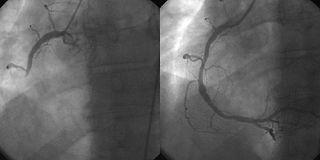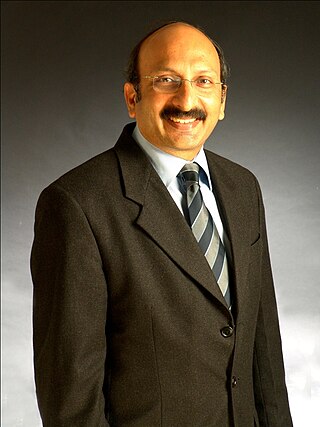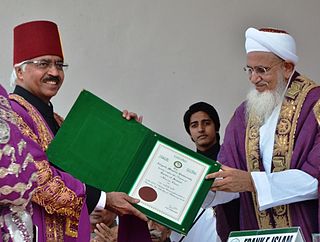Related Research Articles

Interventional cardiology is a branch of cardiology that deals specifically with the catheter based treatment of structural heart diseases. Andreas Gruentzig is considered the father of interventional cardiology after the development of angioplasty by interventional radiologist Charles Dotter.
Andreas Roland Grüntzig was a German radiologist and cardiologist, with foundational interest, training and research in epidemiology and angiology. He is known for being the first to develop successful balloon angioplasty for expanding lumens of narrowed arteries. He was born in Dresden.

Percutaneous coronary intervention (PCI) is a minimally invasive non-surgical procedure used to treat narrowing of the coronary arteries of the heart found in coronary artery disease. The procedure is used to place and deploy coronary stents, a permanent wire-meshed tube, to open narrowed coronary arteries. PCI is considered 'non-surgical' as it uses a small hole in a peripheral artery (leg/arm) to gain access to the arterial system; an equivalent surgical procedure would involve the opening of the chest wall to gain access to the heart area. The term 'coronary angioplasty with stent' is synonymous with PCI. The procedure visualises the blood vessels via fluoroscopic imaging and contrast dyes. PCI is performed by an interventional cardiologists in a catheterization laboratory setting.
The history of invasive and interventional cardiology is complex, with multiple groups working independently on similar technologies. Invasive and interventional cardiology is currently closely associated with cardiologists, though the development and most of its early research and procedures were performed by diagnostic and interventional radiologists.

A coronary stent is a tube-shaped device placed in the coronary arteries that supply blood to the heart, to keep the arteries open in patients suffering from coronary heart disease. The vast majority of stents used in modern interventional cardiology are drug-eluting stents (DES). They are used in a medical procedure called percutaneous coronary intervention (PCI). Coronary stents are divided into two broad types: drug-eluting and bare metal stents. As of 2023, drug-eluting stents were used in more than 90% of all PCI procedures. Stents reduce angina and have been shown to improve survival and decrease adverse events after a patient has suffered a heart attack—medically termed an acute myocardial infarction.

Dr. Praveen Chandra is an Indian cardiologist and chairman of interventional cardiology at Medanta - The Medicity, Gurgaon, India. He is recognised for his work in the field of coronary angioplasty.

Purshotam Lal is an Indian Interventional cardiologist who has to his credit the pioneering of over 20 interventional cardiology procedures for the first time in India, some of which were the first time in the World. Trained in UK, US and Germany, and he has held various faculty positions including Professor, Advisor, etc.

Ulrich Sigwart is a German retired cardiologist known for his pioneering role in the conception and clinical use of stents to keep blood vessels open, and introducing a non-surgical intervention, alcohol septal ablation for the treatment of hypertrophic obstructive cardiomyopathy.
Immaneni Sathyamurthy is an Indian cardiologist and the director of the department of cardiology at Apollo Hospitals, Chennai. A former member of faculty at the Christian Medical College & Hospital, Vellore, he is known to be a specialist in interventional cardiology. He is credited with several publications, some of which have been prescribed as text for medical courses. He was honored by the Government of India, in 2000, with the fourth highest Indian civilian award of Padma Shri.
Bhupathiraju Somaraju, shortly B. Somaraju, is an Indian cardiologist and was the chairman of CARE Hospitals, Hyderabad. Author of many medical articles in peer reviewed journals and an elected fellow of the National Academy of Medical Sciences, he was honoured by the Government of India, in 2001, with the fourth highest Indian civilian award of Padma Shri.

Ashok Seth is an Indian interventional cardiologist, credited with the performance of over 50,000 angiograms and 20,000 angioplasties, which has been included in the Limca Book of Records, a book for achievements and records from an Indian perspective. He is a Fellow of the Royal Colleges of Physicians of London, Edinburgh and Ireland and serves as the chief cardiologist, holding the chairs of the department of cardiovascular sciences and cardiology council at the Fortis Healthcare. Seth, a recipient of the Order of Isabella the Catholic, was honored by the Government of India with the fourth highest Indian civilian award of Padma Shri, in 2003, followed by Padma Bhushan, the third highest Indian civilian award, in 2015.

Tejas M. Patel is a cardiologist from Ahmedabad, India and chairman and chief interventional cardiologist at Apex Heart Institute, Ahmedabad. Patel, who has received the Dr. B. C. Roy Award, the highest Indian medical award, was honoured by the Government of India in 2015 with the Padma Shri, the fourth-highest Indian civilian award. In 2024, he was further recognized with the Padma Bhushan, the third-highest civilian award of the Republic of India, for his outstanding contributions to cardiology.
Harvinder Sahota is an Indian American cardiologist. He is the inventor of the FDA-approved Perfusion Balloon Angioplasty known as "Sahota Perfusion Balloon".
Prabhu Dayal Nigam is an Indian interventional cardiologist, medical academic and the founder of the department of cardiology at Dr. Ram Manohar Lohia Hospital, New Delhi. Holder of multiple master's degrees in medicine, he served as senior consultant of cardiology at the Indraprastha Apollo Hospitals, Delhi.

Kurudamannil Abraham Abraham was an Indian interventional cardiologist and a medical writer. He was a Chief Cardiologist at the Southern Railway Headquarters Hospital, Chennai, and Chief Medical Director of the Southern Railways, where he worked for 25 years.
Upendra Kaul is an Indian cardiologist and one of the pioneers of interventional cardiology in India. He is the Chairman and Dean Academics and Research at the Batra Hospital and Medical Research Center. He is known for his expertise in procedures such as Percutaneous Cardiopulmonary bypass, Rotational and Directional Atherectomy, Coronary stenting and Percutaneous Laser Myocardial Revascularization. He graduated in medicine (MBBS) from the Maulana Azad Medical College and continued his studies at the same institution to secure MD in 1975 and, DM in cardiology in 1978. Later, he obtained advanced training in interventional cardiology from Australia during 1983 to 84. He has served the All India Institute of Medical Sciences (AIIMS) as a professor of cardiology and has been a member of the faculty of the Post Graduate Institute of Medical Education and Research, G. B. Pant Hospital, Batra Hospital and Fortis Health Care, NCR. and Executive Director and Dean at Fortis Health Care, New Delhi.
Daljeet Singh Gambhir is an Indian cardiologist, medical academic, researcher and inventor and the Group Director of Cardiology at Kailash Group of Hospitals and Heart Institute, Noida. He is the inventor of Infinnium Paclitaxel-Eluting Stent, a reportedly cheaper drug-eluting stent which he first presented at the EuroPCR meeting held in Paris in 2003. A fellow of the National Academy of Medical Sciences and an honorary fellow of the Indian College of Cardiology, he is reported to have performed over 10,000 coronary interventions. The Government of India awarded him the fourth highest civilian honour of the Padma Shri, in 2016, for his contributions to medicine.
Donald S. Baim was a researcher and clinician in the field of interventional cardiology. Baim's primary research focused on coronary blood flow, catheter intervention in heart disease, and congestive heart failure. His work helped to shift the use of catheters from a purely diagnostic tool to a therapeutic tool. After receiving a medical degree from Yale and initial medical training, residency and a fellowship at Stanford University Medical Center, Baim spent the bulk of his career at Beth Israel Hospital and at the Brigham and Women's Hospital in Boston. In 1993, Baim founded the Beth Israel Hospital's Cardiovascular Data Analysis Center (CDAC) -- later to be named Harvard Clinical Research Institute (HCRI). Baim died of cancer in November 2009. In October 2016, HCRI changed its name to the Baim Institute for Clinical Research.

Samin K. Sharma is an American philanthropist of Indian descent and an interventional cardiologist who co-founded the Eternal Heart Care Centre and Research Institute in Jaipur (EHCC). Sharma has served on New York State’s Cardiac Advisory Board since 2004. As of 2021, he is Senior Vice-President, Operations & Quality at The Mount Sinai Hospital in New York and runs the Dr. Samin K. Sharma Family Foundation Cardiac Catheterization Laboratory. As of 2018, he is Chairman Board of Trustees, Association of Indians in America (AIA). As of 2022, he has been an investigator on 86 grants and multi-center trials and authored 486 peer-reviewed articles that have been cited 21,734 times.
Alfredo E. Rodríguez is an Argentine interventional cardiologist, clinical researcher, and author. He is the Chief of Interventional Cardiology Service at Otamendi Hospital and Director and Founder of the Cardiovascular Research Center (CECI) a non -profit Research Organization in Buenos Aires Argentina.
References
- 1 2 3 4 Navigation News | Frontline
- ↑ Apollo Hospitals::
- ↑ Dr. Mathew Samuel Kalarickal Cardiologist Mumbai India
- ↑ "Padma Awards" (PDF). Ministry of Home Affairs, Government of India. 2015. Archived from the original (PDF) on 15 October 2015. Retrieved 21 July 2015.
- ↑ "Padmashree for this doctor of hearts". The Times of India. 10 April 2000. ISSN 0971-8257 . Retrieved 28 February 2023.
- ↑ [ dead link ]